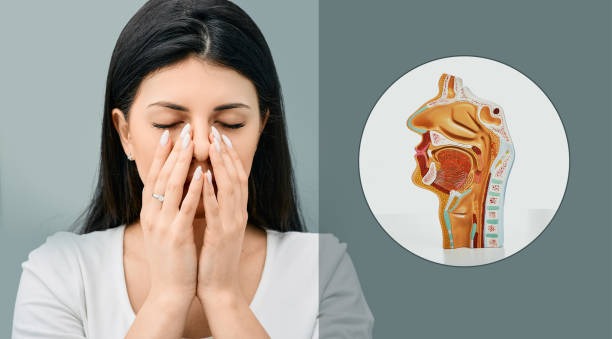Key Takeaways
- Sinus health is significantly influenced by allergic reactions, which often lead to congestion, infections, and reduced quality of life.
- Recognizing allergy triggers and taking preventative actions can dramatically reduce sinus-related issues.
How Allergies Affect Your Sinuses
The impact of allergies on sinus health typically unfolds in a subtle yet persistent manner. When seasonal triggers, such as tree pollen, grass pollen, weed pollen, or even everyday allergens like dust mites, enter the body, the immune system can mistakenly perceive them as dangerous invaders. This reaction kickstarts an immediate immune defense that targets the nasal passages and sinus cavities. More specifically, substances like histamine are released, causing the delicate sinus lining to swell and produce more mucus than usual. The result is a blocked, pressure-filled feeling that can disrupt daily routines, productivity, and sleep, as well as the ability to focus at work or school.
People living in environments with strong seasonal changes or high indoor allergen levels often experience regular sinus flare-ups. It’s not surprising that clinics specializing in ENT in Austin and similar high-pollen regions field a constant flow of patients during allergy season. Inflamed sinuses can extend far beyond a stuffy nose, leading to sharp facial pain, jaw aches, recurring headaches and persistent fatigue as airflow and drainage pathways become impaired. Repeated exposure to allergens can lead to chronic episodes, necessitating more intensive intervention and care.
Sinus Inflammation: Beyond the Stuffy Nose
Understanding the depth of sinus inflammation sheds light on why allergies can feel so overwhelming. When allergy-induced inflammation blocks the tiny ducts connecting the sinus cavities to the nasal passages, mucus and fluids are trapped inside. This stagnant environment is a haven for bacteria and viruses, often leading to secondary infections of the sinuses (sinusitis).
Chronic sinus inflammation is not just a frustrating inconvenience. Over time, inflammation can thicken and scar the sensitive sinus mucosa, making the linings more susceptible to further irritation and infection. Symptoms often mirror standard allergy complaints, nasal congestion, headaches, and facial pain, but in cases of chronic sinusitis, they persist for months at a time. This prolonged discomfort can lead to sleep disturbances and a significant decline in quality of life. It may even affect the ability to exercise or enjoy social settings due to ongoing pressure, pain, or self-consciousness about symptoms.
Common Allergy Triggers and Their Impact
- Pollen: Airborne pollen is a hallmark of allergy seasons, such as spring and fall. Wind can carry pollen miles away from its source, allowing it to infiltrate homes or offices through open windows and attach to hair, clothing, and pets, thereby increasing exposure to the sinuses.
- Household Dust Mites: Invisible to the naked eye, dust mites thrive in fabrics, bedding, carpets, and upholstered furniture. Their waste products are potent allergens, provoking chronic sinus inflammation for people who spend a lot of time indoors.
- Pet Dander: Not limited to cats and dogs, pet dander includes skin flakes, fur, saliva, and even urine. These tiny particles become airborne and settle in hard-to-reach corners, complicating sinus management for animal lovers.
- Mold: While bathrooms, kitchens, and basements are notorious for mold growth, mold spores can grow virtually anywhere with moisture. Mold allergens are robust and can linger in the air, causing severe sinus congestion and respiratory symptoms for sensitive individuals.
The diversity of allergy triggers means that identifying personal sensitivities is often the first step in achieving relief from sinus issues. Home improvements, such as using dehumidifiers, cleaning air ducts, and washing bedding in hot water, can make a dramatic improvement in reducing exposure and preventing sinus flare-ups.
Recognizing Symptoms—When To Take Action
Many allergy sufferers downplay persistent sinus symptoms, confusing them for lingering colds or adapting to daily discomfort. Classic warning signs include a sense of pressure or throbbing in the cheeks, forehead, or behind the eyes. If your nasal passages feel chronically blocked, if you experience repeated headaches that worsen when leaning forward, or if your sense of smell and taste diminishes, your sinuses may be the underlying cause.
More subtle indicators can include restless sleep due to nighttime congestion, a chronic cough caused by post-nasal drip, and general fatigue resulting from disrupted breathing patterns. According to medical experts, symptoms lasting longer than 10-14 days, recurring bouts of sinus pressure, or any sign of fever or vision changes require prompt medical attention. Early intervention can prevent complications like acute sinusitis, bronchitis, or even lasting damage to the sinus lining.

